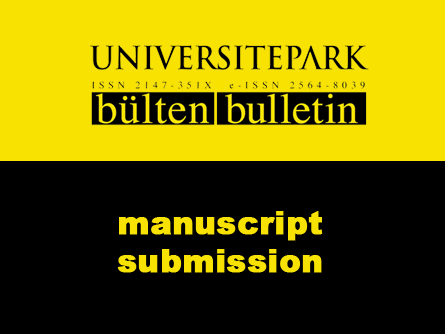Cultural Responses to Lightning: The Case of Maccaa Oromo
pp. 87-99 | Published Online: September 2019 | DOI: 10.22521/unibulletin.2019.81.7
Terefe Mitiku, Milkessa Edae and Jinenus Wako
![]() Full text PDF |
2482 |
2360
Full text PDF |
2482 |
2360
Abstract
This work investigated Oromo cultural responses to lightning. In the work, sociocultural factors affecting the performance during responses are also discussed. Furthermore, the paper also examines and describes different rituals and taboos regarding lightning. Strategies used by the communities to minimize risk caused by lightning are also identified. Different spiritual and physical responses performed during and after lightning are justified according to worldview and the beliefs that guide the daily life of the Oromo people. Grief and sorrow are expressed with more acceptable taboo words such as using euphemisms and metaphoric expressions. In the course of a performance, each and every activity is directed by spiritual leaders and community elders, according to the cultural and religious norms of the society. Explanations with regards to the importance of certain rituals or activities and words are included. In addition, details for why certain taboos are accompanied by particular cultural rituals are presented. Community members who are the main actors during rituals are also identified. The ritual participants, types of sacrifice, and the roles of actors in the performance of rituals are also mentioned in this paper. Finally, the paper discusses the changes and continuities observed regarding the ritual and its process.
Keywords: Oromo, folklore, lightning, belief, taboo
ReferencesBartels, L. (1990). Oromo Religion: Myths and Rites of the Western Oromo Ethiopian –An Attempt to Understand. Berlin, Germany: Academia Verlag GmbH.
Bassi, M. (1996). Decisions in the Shade: Political and Juridical Processes among the Oromo-Borana. New Jersey, USA: Red Sea Press.
De Salviac, M. (1901). An ancient People of Great African Nation; The Oromo (A. Kenno, Trans.). Finfinne, Ethiopia: Berhanena Selam Printing Enterprise.
Gemechu, D. (2002). Some Aspects of Conflict and Conflict Resolution among Waliso Oromo of Eastern Macha, With Particular Emphasis on the Guma. Master’s Thesis. Addis Ababa University, Ethiopia.
Kassam, A., & Gegersa, G. (1996). Aloof Alollaa: Inside and outside; Boran Oromo Environmental Law and Methods of Conservation. In D. Bronkensha (Ed.), A River of Blessing (pp. 85-98). Cruithne press: USA
Kelbessa, W. (2001). Traditional Oromo Attitudes towards the Environment an Argument for Environmentally Sound Development. OSSREA Social Science Research Report Series No.19. Addis Ababa, Ethiopia: Commercial Printing Enterprise.
Mario, A. (2005). The God of the Oromo: A Religious Paradigm in the Work of Lambert Bartels. Journal of Oromo Studies, 12(1&2), 52-67.
Megerssa, G. (2005). The Oromo worldview. Journal of Oromo Studies, 12(1 & 2), 68-79 .
Monica, V. (2011). Ritual and Myths Between Ireland and Galicia. The Irish Milesian Myth in the Leabhar Gabhála Éireann: Over the Ninth Wave. Origins, Contacts and Literary Evidence. Master’s Thesis, Dublin City University, Republic of Ireland.
Okpewho, I. (1992). African Oral Literature: Backgrounds, Characters, and Continuity. Bloomington: Indiana University Press.
Sims, M. (2005). Living Folklore: An Introduction to the Study of People and Their Traditions. Logan, Utah: Utah State University Press.
Tablino, P. (1999). The Gabra; Camel Nomads of Northern Kenya. Limuru, Kenya: Kolbe press.
UNIBULLETIN News!
► New issue coming soon! (Volume 13 Issue 1, 2024)
► Call for Papers
UNIBULLETIN is calling for submissions. Authors are invited to submit papers from the all fields of the Education (General) and Social Sciences (General) in the international context. All submissions should be presented only in English.
